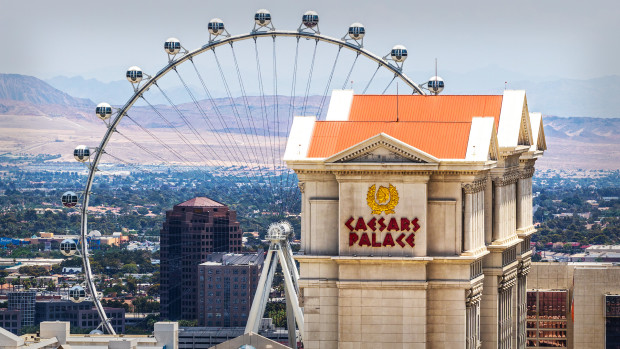
Las Vegas collects the health problems of the world: If there's an infectious disease, someone brings it to Sin City.
That's partly why in the early days of the covid pandemic some of the first super-spreader events took place at Las Vegas-based conventions.
You can't blame that on anything that the city has done, or not done. If you put a lot of people in close proximity and even one of them has a highly contagious disease, then it will spread quickly.
DON'T MISS: More Las Vegas Strip casinos end a popular practice
What happened in Las Vegas also happened at theme parks, on cruise ships, and anyplace else where people gathered in mass. Since covid, however, the Las Vegas Strip has been plagued with a number of other significant health issues.
RSV threatened to overwhelm area hospitals, a deadly fungus proved difficult for doctors to cure, and numerous Las Vegas Strip properties were plagued by bedbugs. People may say "what happens in Vegas stays in Vegas," but in recent months a visit to the Strip increasingly might mean bringing home an unhealthy souvenir.
That bad luck is apparently continuing as Southern Nevada Health District is investigating multiple instances of a highly communicable disease on the Las Vegas Strip.

Image Source: Shutterstock.
Caesars Palace has a Legionnaires’ disease problem
"Legionnaires’ disease is a serious type of pneumonia (lung infection) caused by Legionella (LEE-juh-nell-a) bacteria," according to the Centers for Disease Control and Prevention. "People can get sick when they breathe in small droplets of water or accidentally swallow water containing Legionella into the lungs."
The Southern Nevada Health District is investigating two travel-associated cases of Legionnaires’ disease in guests who stayed at Caesars Palace Hotel and Casino.
"Two individuals who have been diagnosed with Legionnaires’ disease stayed at Caesars Palace Hotel and Casino within the last 12 months. Environmental samples taken from the property tested positive for Legionella," according to a health-district news release.
Caesars Entertainment (CZR) -) has been cooperating with the investigation. Subsequent tests of the Caesars Palace water system did not detect Legionella bacteria.
For those who might have contracted Legionnaires’ disease: The symptoms generally begin to appear between two and 10 days after you were infected.
"People should watch for symptoms such as cough, shortness of breath, fever, muscle aches, and headaches for up to two weeks after exposure," according to the Southern Nevada Health District.
The Las Vegas Strip heads into a huge stretch
While Las Vegas has fully recovered from the covid pandemic, it remains vulnerable to health concerns that cause people to stay away. We saw that during the Consumer Electronics Show 2022, when the omicron variant of covid caused most major companies to pull out of the convention.
In that period vaccines already were common and Las Vegas's hospitals had plenty of capacity. The issue was not the dangers covid presented but rather the optics of companies sending employees into a city where -- despite testing, vaccine requirements, and mask protocols -- the risks of infection persisted.
In the coming months, Las Vegas will host two of the biggest events in its history. November will bring Formula 1 to the Strip for an event that looks to be a boon for Caesars, MGM Resorts International, Wynn Resorts, and every hotel on the Strip.
That will be followed in February by an even bigger event: the Super Bowl. Both the F1 race, which will literally take place on the Strip, and the Super Bowl will bring record crowds and revenue to the Strip.
An outbreak of Legionnaires’ disease -- or any other highly communicable health problem -- may not cancel those events, but it could cause crowds to stay away.
That may seem unthinkable, but CES normally packs the city, and the 2022 event left hotels operating at roughly 30% occupancy.
Get investment guidance from trusted portfolio managers without the management fees. Sign up for Action Alerts PLUS now.







